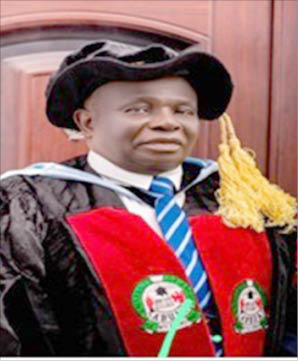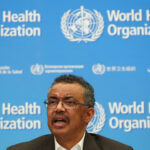The African Peace Institute for Social Research & Apudi Institute for Peace Studies and Social Rehabilitation (APIS) in conjunction with the United Nation’s Office on Genocide, has put in place a motion to tackle crime and insecurity in Africa.
To achieve this, the groups will today hold an International Peer Review Peace Conference.
The conference, with the theme, ‘Promoting Empirical Research for Peace Practice and Community Safety in Africa: A Peer Review’, is billed to hold in Abuja from May 15 to May 17, 2024.
Daily Trust reports that crime has a global reach, and Africa is not exempt from its impact. The continent, as a whole struggles with crime rates said to be influenced by socio-economic disparities.
Shell confirms explosions near gas facility in Bayelsa
Nigeria needs unified approach to strengthen national security – FG
Factors including; poverty, limited educational access, and economic inequality contribute to a climate where some individuals resort to illicit activities for survival.
Certain African cities face significant challenges, marked by high crime rates linked to issues like drugs, kidnappings, and armed conflicts.
Urban areas exhibit higher crime frequencies than rural or suburban areas, according to the latest update from Numbeo’s crime index.
The crime rate is calculated as the number of offences per capita per year, offering insights into the safety of a particular area. Numbeo categorises crime levels as moderate (40-60), high (60-80), and very high (exceeding 80).
According to the 2023 Organised Crime Index released on 26 September, Africa has continued to experience high levels of criminality since 2021, remaining the second highest scoring continent in the world at 5.25, out of 10, coming in after Asia.
The crime index is measured based on survey replies on perceptions of crime, safety levels, concerns regarding specific crimes, property, and violent crimes.
The Democratic Republic of the Congo had Africa’s highest organised crime index in Africa, scoring 7.35 points. Nigeria ranked second with a total of 7.28 points. To follow, other African countries with significant criminality levels were South Africa, Kenya, Libya, and the Central African Republic.
Human trafficking is the major crime perpetrated in Africa. In 2022, over 21,700 human trafficking victims were identified in Sub-Saharan Africa. Most victims of trafficking in persons on the continent are girls and women, who are predominantly victims of forced labor and sexual exploitation. Other common forms of criminality in Africa are financial crimes, as well as arms trafficking, which include the illegal trade of unauthorized small arms, ammunition, and explosives.
In recent years, terrorism has spread at particularly high levels in some African countries. Nigeria, headquarter of the Boko Haram terrorist group, has been facing high levels of crime, violence, and poor national security, and ranked among the highest 10 countries in the global terrorism index in 2022. However, Nigeria and the Niger Republic have seen improvements between 2020 and 2022, with the hot spot area in the region moving more towards the border area between Burkina Faso, Mali, and Niger.
Furthermore, terrorism tends to have adverse effects on the economy. For instance, the economic impact of terrorist acts between 2007 and 2019 in Nigeria amounted to around 142 billion U.S. dollars.
A recent survey by Statista, revealed that since 2000, violent crime in Africa has been following an increasing trend. In 2022, violent attacks aimed at civilians reached their highest at 9,024 events, up from 1,206 in 2000. In addition, police forces in Eastern African countries committed by far the highest number of cases of police brutality on the continent.
In 2022, the region registered 191 atrocities by law enforcement officers compared to 21 events in the second-highest area, Western Africa. Moreover, organised crime was also highest in Eastern Africa as of 2021, with an average score of 5.66 index points. A deterioration in organised crime in all African regions was registered between 2019 and 2021, making the continent the second highest globally (following Asia).
Statista, while noting South Africa’s increasing worry and crime scene, said: “A significant share of South Africans are concerned about violence and crime. As of June 2023, 56 percent of the respondents worried about crime and violence, which placed the country among the highest countries in the 29 covered states. Since April 2022, South African respondents’ troubled by crime has consistently been over 50 percent.
“This is a result of aggravating levels of crime in the country. For instance, all forms of contact crimes increased (except sexual offenses) in the fourth quarter of 2023 compared to the same quarter a year prior. However, South Africa had a non-proportional number of convictions for crimes.”
Daily Trust reports that during the three-day event in Abuja, leading experts on peace, security and development from across Nigeria, Africa and the world will present papers and engage in various syndicate sessions.
The African Peace Institute for Social Research with its collaborator, the APUDI Institute for Peace Studies and Social Rehabilitation as the names connote, are Peace Institutes engaged in research, consultancy, human capacity development and academic activities at the postgraduate level. They are engaged in dual pedagogy.
They have been involved in topical issues bedeviling the nation in particular and the world in general. These challenges form the bedrock of their engagements in peace practice and management.
While noting that insecurity in recent times had become worrisome and seemingly ungovernable, the Prof. Danladi Abok Atu, Director General, APUDI Institute for Peace Studies and Social Rehabilitation (APIS) said this is without doubt, inimical to the growth and development of the corporate existence and security of different states of Africa.
This, Atu said prompted the conference, dedicated to fostering collaboration, synergy and dialogue among leaders, policymakers, academics and traditional/religious leaders towards addressing topical issues concerning global peace and security. The conference will also enhance the professional development of participants in their challenging tasks of peace practice and security initiative through robust data build up.
“At the end of the conference, it is expected to find very reliable data that will help policy makers and security actors in decision making on peace and security in Africa.
“The event also hopes to come up with viable focal areas of collaboration with relevant agencies both locally and internationally to curb high level crime and insecurity in Africa such as; banditry, school insecurity, genocide, forest and ungoverned space security, border security, etc,” the DG said.
The conference is going to be led by a lead presenter who will speak on the general theme and provide insight on some peer review work for discussion.
The discussion will be led by; the United Nations, Genocide Office (UNGO); Rear Admiral Olumuyiwa Marakinyo Olotu, the Commandant, National Defence College Abuja; Joseph Ochogwu, the Director General, Institute for Peace and Conflict Resolution (IPCR); Nathaniel Awuapila, the President, Society for Peace Studies and Practice (SPSP) and Alh. A.S. Adeleke.
Papers and research presented will be done on a panel basis. There will be three panels; panel one will focus on peace, security and strategy, panel two will speak on social work, NGO and development studies and social statistics, while the third panel will duel on public policy, governance, and leadership.
The conference is being managed and organised by the Local Organizing Committee. Members of the committee include Dr. Kevin Amanze Ihenatu, Chairman; Dr. Nnamdi Chris Okafor, Secretary; Rev. Fr. Dr. Emmanuel Ejimonu, Dr. Gotan Irimiya Dr. Ozioma Nduagu, Dr. John Babi, Dr. Joshua Bakut and Igwe Martin.

 Join Daily Trust WhatsApp Community For Quick Access To News and Happenings Around You.
Join Daily Trust WhatsApp Community For Quick Access To News and Happenings Around You.



